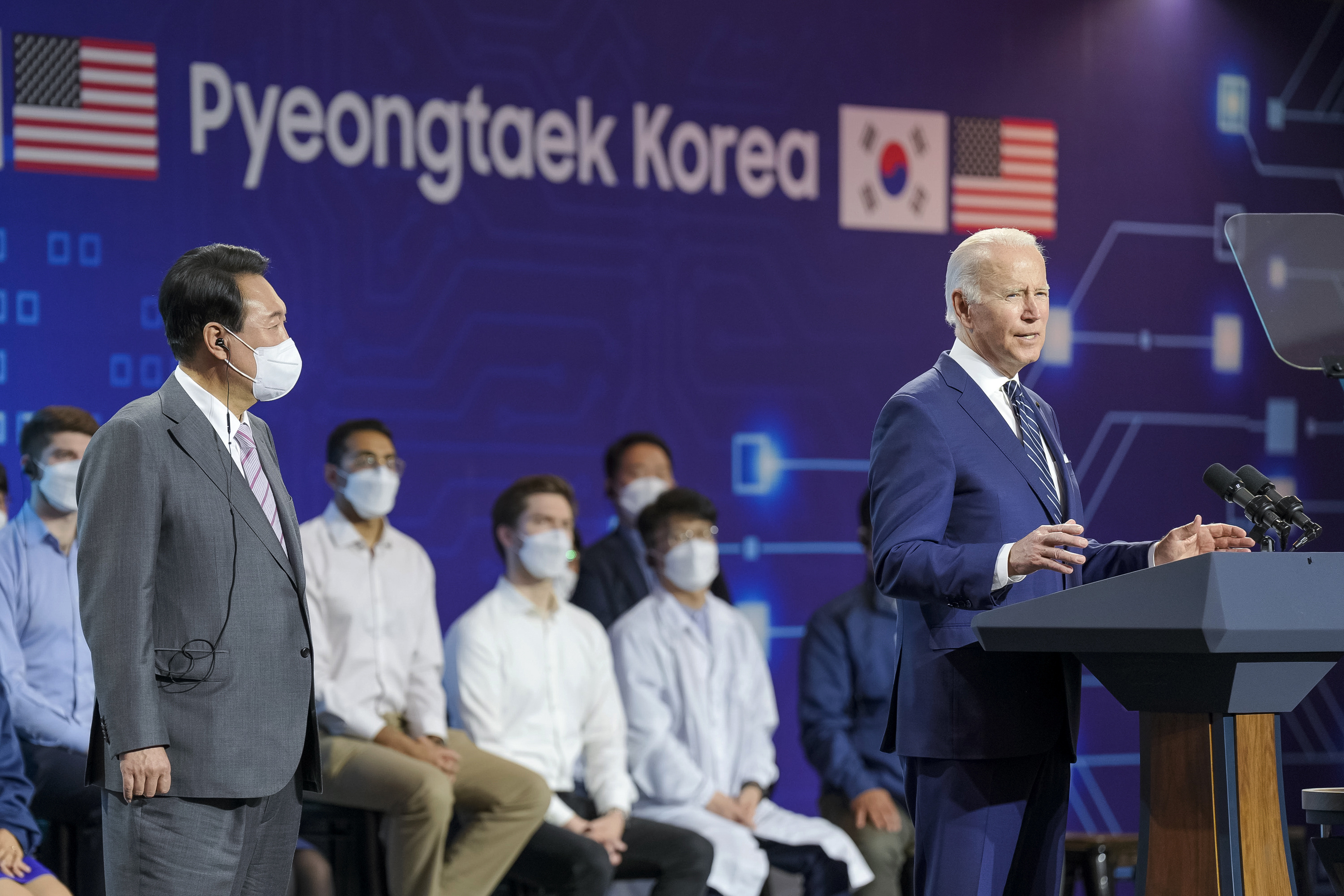
U.S. WEEKLY offers an in-depth analysis of various geopolitical processes that have direct effect on US’ domestic and foreign policies. This particular analytical column is possible thanks to the cooperation with polish media abroad: Dziennik Związkowy – Polish Daily News, Polishexpress of United Kingdom and WIrlandii.pl of Ireland
Date: 11 July 2022
The United States accepts China’s challenge. Biden leads the establishment of “Partners in the Blue Pacific”
On June 24, 2022, a new initiative was launched to respond to the growing interference of the People’s Republic of China in the Pacific island region. China, trying to move the boundary of its influence further and further, wants not only to tighten economic and defense cooperation with small island states in the Pacific, but above all to tear them away from the protection of the United States. The leaders of the newly formed coalition, led by President Joe Biden, include the United States, Australia, Japan, New Zealand and the United Kingdom.

During his recent meetings at the international level, the US President devoted a lot of time to building relations with representatives of allied countries in the Indo-Pacific. Joe Biden visited Asia for the first time as president in late May this year to strengthen ties with South Korea during his visit to Seoul and two days later at the QUAD summit in Tokyo. It is also worth noting that on May 31, 2022, the Prime Minister of New Zealand, Jacinda Ardern, visited the White House.
The president’s administration spends a lot of time building relations with allies in the Pacific and managing relations with the People’s Republic of China. This is evidenced by the presence of US Secretary of Defense Lloyd Austin at the Shangri-La Asia Security Summit in Singapore. On June 11, Austin not only met with his Australian and Japanese counterparts there, but the day before he had his first meeting with his Chinese counterpart Wei Fenghe. The diplomatic turbulence of the statements by the Chinese representative confirmed the Americans in the belief that the People’s Republic of China is not focused on maintaining the status quo in the region, so the Joe Biden administration, in agreement with its allies, decided to launch another initiative aimed at facing Chinese expansion.
A statement released on the White House website indicates that they plan to use their potential to ensure “prosperity, resilience and security in the Pacific.” The means to achieve the set goal is cooperation with countries that are directly exposed to the growing territorial, economic and military aspirations of the People’s Republic of China. Mention is made here, inter alia, of about Fiji, Micronesia or Tonga.
In the official media information of the Joe Biden administration, we read about three areas of cooperation on which the Partners in the Blue Pacific initiative will focus:
- Efficiency and performance in the Indo-Pacific
The demands of the five countries are to be based on the upcoming 2050 Pacific Islands Forum strategy for the Blue Pacific.
- Strengthening regionalism
The PBP will develop closer contacts with Pacific Island State Governments and the Pacific Islands Forum, facilitating stronger and more regular engagement with countries launching a new initiative in the region.
- Expanding opportunities for cooperation between the Pacific and the world
PBP will encourage and facilitate greater involvement in the Pacific through any other partner who shares the Pacific’s values and aims to work constructively and transparently for the benefit of the people of the region.[1]
Building ever-wider alliances and collaborations to support the islands in the Indo-Pacific region is another step for the United States to respond to a growing Chinese initiative. Joe Biden’s administration and the countries of the Free World see the threat that goes along with the progressive aspirations of the PRC. Actions in the East are not the only tool of the US in building resistance, also at the NATO summit in Madrid, which took place on June 28-30, 2022, the topic of the Chinese threat was raised for the first time in history. Representatives of partners from the Pacific region also attended the meeting of the leaders of the North Atlantic Alliance. We are talking about leading politicians from Australia, New Zealand, Japan and South Korea.
At a time when media headlines are dominated by topics related to Russia’s aggression against Ukraine, the administration of Joe Biden, together with the leading leaders of the countries of the Pacific region and the world, is proving that it is not losing sight of the greatest threat, which they see in the form of totalitarian actions, the expansion of the Chinese People’s Army Liberation, economic and territorial expansion of China. The partial neutralization of China also means an indirect weakening of the regime of Vladimir Putin, which remains in constant agreement with Xi Jinping.
[1] https://www.whitehouse.gov/briefing-room/statements-releases/2022/06/24/statement-by-australia-japan-new-zealand-the-united-kingdom-and-the-united-states-on-the-establishment-of-the-partners-in-the-blue-pacific-pbp/
Jan Hernik
Jan Hernik is a journalist and publicist who gained experience in Polish independent Internet media broadcasts. In his career, he participated in the creation of projects related to domestic policy and geopolitics. Hernik has an experience in working as a TV presenter and editor of a news portal. At the Warsaw Institute, he is the editor-in-chief and expert in the field of the United States.
Hernik is a graduate of the American Studies Center at the University of Warsaw. He specializes in the theory of religion, race and ethnicity for political choice in the U.S presidential elections. His research interests also include the colonial era of the United States, the right to bear arms and the American liberal thought.
Support Us
If content prepared by Warsaw Institute team is useful for you, please support our actions. Donations from private persons are necessary for the continuation of our mission.
All texts published by the Warsaw Institute Foundation may be disseminated on the condition that their origin is credited. Images may not be used without permission.















